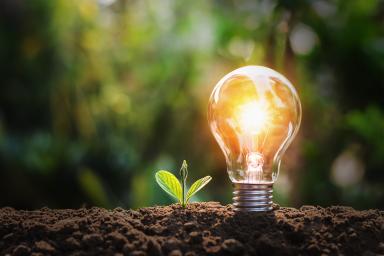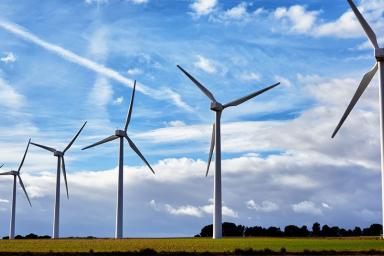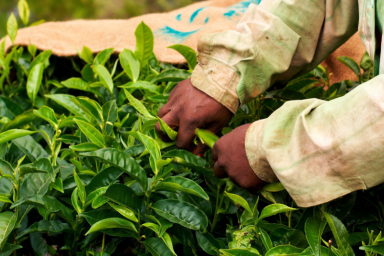Eco-friendly packaging alternatives for your business
Changes in consumer behaviour and a shift in the national focus towards sustainability has seen a surge in packaging recycling.
With 61% of UK consumers claiming to have limited their use of single-use plastic, some businesses are seeking alternatives to plastics, especially in packaging materials.
In addition, new policies like the Plastics Packaging Tax will see prices increased for recycled plastics while existing legislation requiring retailers to charge for single-use plastic bags for example, is designed to reduce the amount of single-use plastic in circulation.
Eco-friendly packaging alternatives
Transitioning to sustainable packaging alternatives doesn't need to be complicated.
The materials below are just some alternatives to plastic packaging out there that are considered environmentally friendly.
Biodegradable foam chips/peanuts
Biodegradable packing peanuts made from natural, nontoxic sources such as wheat, offers the same level of protection to products inside your package, according to Swiftpak.
Paper bubble wrap
While standard bubble wrap can protect fragile items in shipping, it is made from plastic which makes it environmentally unfriendly.
Paper bubble wrap on the other hand is fully recyclable and biodegradable and offers good protection in packaging.
Corrugated packaging
Widely used in the packaging industry, corrugated cardboard is a strong and lightweight material that consists of three layers of brown paper made from wood and paper fibres.
96% of corrugated packaging can be recycled up to ten times into new packaging materials after its initial use.
In addition, it claims more corrugated packaging is recovered for recycling than any other packaging material.
Recycled cardboard and tape
Already a popular, widespread material and recyclable and cheap to manufacture, Cardboard packaging is eligible for green certification from a body such as FSC.
Paper tape is a sustainable packaging alternative to plastic tape that’s commonplace.
Being recyclable and biodegradable, it is eco-friendly and various types of paper tape packaging are available, such as Kraft reinforced tape and Gummed Paper Tape.
Bioplastics
Bioplastics are packaging materials created from natural resources such as corn starch.
They can be made from other sources and are sustainable to produce.
The sugars in corn starch can be bioengineered to create environmentally sustainable materials such as PLA (Polylactic Acid).
PLA can be developed as a packaging material, as well as textiles and engineering plastics, according to ScienceDirect.
Air pillows made of recycled materials
Inflatable air pillows are a good eco-friendly alternative to plastic foam peanuts or bubble wrap for filling voids in boxes or cushioning packed items.
Made of 100% recycled materials, they can be re-used, recycled, and are even biodegradable.
Mushroom root packaging
Like corn, mushroom and fungi are natural resources that can be used as a packaging alternative.
It's grown using Mycelium, making it a readily-available raw material and one that can be readily recycled due to its biodegradability.
Wool
Wool is an incredibly versatile material that's a good alternative to plastic-based packaging.
It’s totally compostable and fully biodegradable, and an efficient insulator too, meaning that temperature-sensitive products are protected.
Stone paper
Stone paper is a non-toxic, biodegradable alternative to paper.
It is made from calcium carbonate, one of the world's most abundant natural resources.
It is also recyclable, waterproof, and printable, making it a suitable packing and shipping material.
Seaweed
The seaweed-based packaging industry is expected to experience a growth rate of 16% between 2020-2027, according to Data Bridge Market Research.
It found that the expansion of environmental and sustainable initiatives is driving this growth.
New, naturally biodegradable materials such as Notpla, which are made from seaweed and plants, can be used as an alternative to plastic packaging.
Other innovative plastic packaging alternatives
Bagasse
Bagasse is created as a by-product of sugarcane processing and can be adapted to fit a variety of packaging requirements, particularly for food delivery and transportation.
It is greaseproof and waterproof, which makes it ideal for use in takeaway and food storage containers.
Palm leaves
A versatile form of alternative packaging because they can be moulded into different shapes and forms, Palm leaves are taken from the areca palm plant and used to produce packaging that can be naturally biodegradable.
Palm leaves are often used as a material for tableware, such as an alternative to plastic plates and bowls.
Silberboard paper
Silberboard paper is both recyclable and biodegradable. It can be used across various industries for packaging purposes, such as food and pharmaceuticals and is an environmentally friendly alternative to laminated metallised polyester films.
Wood pulp cellophane
When used as packaging, Wood pulp cellophane may help reduce (.PDF, 534 KB)(Opens in new window) greenhouse gas emissions and can provide heat resistance that helps extend a product's shelf life.
Milk plastic
Milk plastic may be a viable alternative to plastic packaging. It is based on milk protein and is water-soluble and biodegradable due to its casein molecules.
A chain of casein molecules can form a polymer, which can be moulded into plastic shapes.
Seed phytonutrients shower-friendly paper
Already in use as containers for products such as wine, pet food, and laundry detergent, Seed phytonutrients shower-friendly paper made by Ecologic Brands consists of a water-resistant, recyclable outer shell made from recycled cardboard and newspaper.
An inner pouch, which houses the product, is made from recyclable plastic but uses 60% less material than regular plastic bottles.
Tags related to content:
Disclaimer: We make reasonable efforts to keep the content of this article up to date, but we do not guarantee or warrant (implied or otherwise) that it is current, accurate or complete. This article is intended for general information purposes only and does not constitute advice of any kind, including legal, financial, tax, or other professional advice. You should always seek professional or specialist advice or support before doing anything on the basis of the content of this article.
Neither British Business Bank plc nor any of its subsidiaries are liable for any loss or damage (foreseeable or not) that may come from relying on this article, whether as result of our negligence, breach of contract or otherwise. “Loss” includes (but is not limited to) any direct, indirect, or consequential loss, loss of income, revenue, benefits, profits, opportunity, anticipated savings, or data. We do not exclude liability for any liability which cannot be excluded or limited under English law.
Green Decoder
Featuring a glossary of sustainable terms curated in partnership with the Nottingham Business School, Nottingham Trent University, our green decoder is helping smaller businesses decipher the terminology surrounding decarbonisation.



